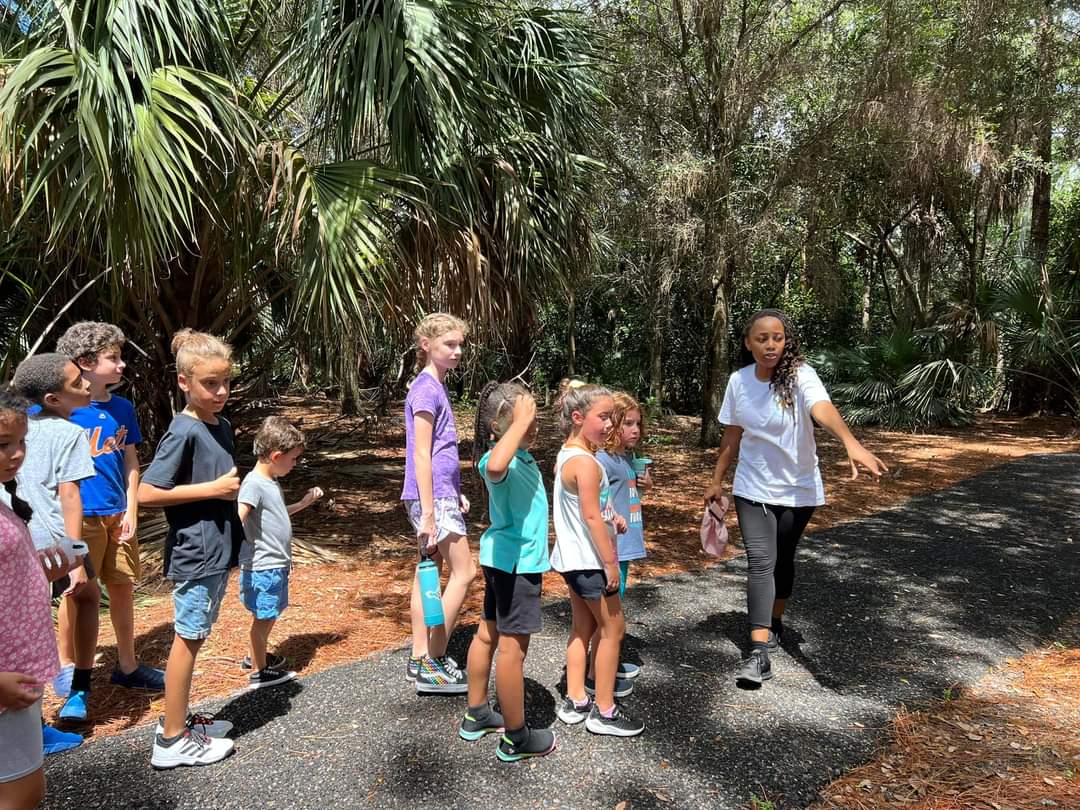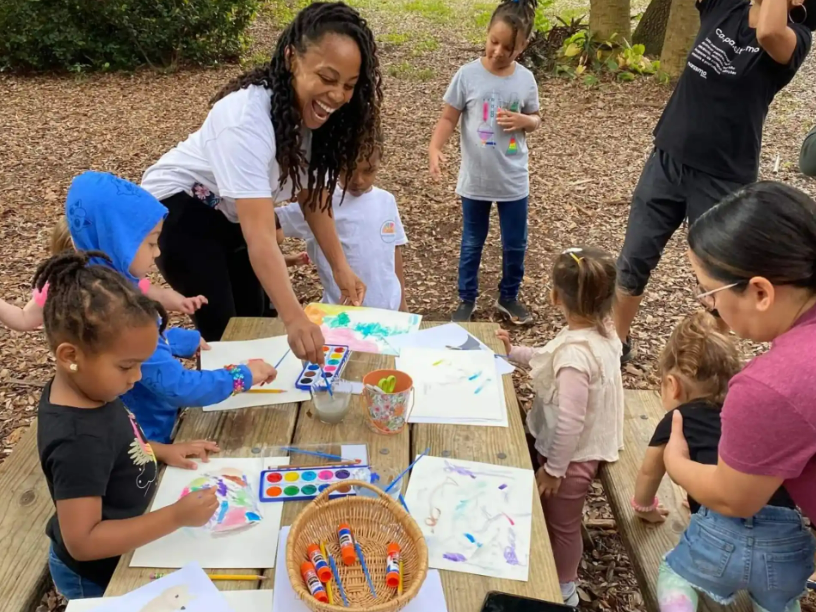
Editor’s note: Kind Academy in Coral Springs, Florida, is one of 32 innovative programs chosen as semifinalists for the Yass Prize for educational excellence. Seven finalists and a $1 million grand prize winner will be announced in December. You can find a list of winners here.
Iman Alleyne decided to pursue a career in education for the same reasons many people do: her kids.
A pharmacy employee at the time, Alleyne saw education as a rewarding path that would let her help students while allowing her to spend more time with her son. So, she went back to school and earned a master’s degree in school counseling.
The allure of a daytime, Monday through Friday schedule and summers off soon faded when she saw how high stakes standardized testing had changed the profession.
“They really used us as testing coordinators,” Alleyne said. “I quickly realized that I wouldn’t be able to counsel. That made me sad. I didn’t want to be a testing coordinator. I wanted to counsel and connect with students.”
She noticed that children with special needs were more likely to get in trouble and be referred to guidance counselors, so she got certified in special education so she could work one on one with more kids. Those interactions, along with shrinking recess times and forced silent lunches, opened her eyes. Not liking what she saw, she launched a part-time nature class for moms of toddlers.
Meanwhile, Alleyne’s oldest son hated pre-kindergarten so much that he cried every morning and begged her to let him stay home.
“It was horrible, and it broke my heart every day,” she said. “By the end of the school year, I pulled him out and decided to start homeschooling him.”
That’s the origin story of Kind Academy, a hybrid homeschool and microschool for elementary age students that got its official start in 2016 after a four-year evolution. The name was inspired by the values Alleyne wanted to impart: kindness to self, kindness to others, and kindness to the world.
That’s one of the reasons the school day includes a lot outdoor learning, though the environmental aspect was originally rooted in convenience.
“I had three boys, so it was crazy,” she said. “It was easier to spend a lot of time outside.”
The program quickly grew after other parents found out what Alleyne was doing and asked if their kids could join.
Today, Kind Academy serves 25 students who come for in-person instruction. Options include attendance two, three or five days a week, although most students are part-timers who are homeschooled. The school also offers an online alternative to homeschool parents or those seeking enrichment opportunities for their kids.
The day begins with 10 to 20 minutes of social emotional learning, or SEL – the process of developing the self-awareness, self-control, and interpersonal skills that are vital for school, work, and life success – akin to “circle time.” Then groups of eight to 10 students do individual work at their own pace with help from tutors.
The program is competency-based, with no traditional grades. Instead, students produce portfolios to show they have mastered the material. This method allows student to move ahead in some subjects while taking more time in others.

“We call it Montessori 2.0 or modern Montessori,” Alleyne said, referring to an education model that takes into account the whole child, including physical, emotional, mental, spiritual and social ways of being. Students also participate in project-based learning focusing on a weekly theme, such as marine biology, before they head to lunch. After lunch, they spend the afternoon outside, playing and learning.
“We call it more chances for SEL,” said Alleyne, who witnesses plenty of opportunities for learning and problem-solving, skills students will need as adults. She recently noticed some students engaged in a dispute over a game of tag. They asked her to settle it. Instead, Alleyne encouraged them to work it out themselves, which they did.
Another aspect of Kind Academy’s culture is acceptance of all people, a value made clear in a gender-affirming statement on the school’s website. Alleyne said her students are diverse and include some who are transgender and have experienced bullying.
“I have had parents who called me and were crying,” she said. “Those students come in and feel comfortable saying ‘This is who I am.’ These kids feel valued here. It just makes my teacher heart and my parent heart happy.”
Though Kind Academy is a private school, Alleyne works to keep it accessible to all students regardless of income. She said about 50% of her students come from low-income households. She accepts the Family Empowerment Scholarship for Students with Unique Abilities. But only students with certain special needs qualify for it.
Alleyne hopes that Florida legislators will convert the Family Empowerment Scholarship for Educational Options to an education savings account model so that more students can have access to high-quality, innovative programs.
“So many families go to public schools because they can’t afford something like what we do,” she said. “If we could access the (FES-EO scholarship program), it would put our program within reach for so many families who want flexibility and personalized learning. We could really grow.”
Growth is definitely on Alleyne’s agenda. It could come sooner rather than later thanks to her school’s inclusion on a list of 32 semifinalists for the coveted Yass Prize, a $1 million award given to a program judged to offer the nation’s best education that is “sustainable, transformational, outstanding and permissionless.”
Kind and the other semifinalists have been awarded $200,000 grants. Alleyne plans to put her grant toward her goal of opening 100 schools in 10 years. She has her sights set on West Palm Beach and Miami.
“Hopefully, we’ll have seven schools in the next two to three years,” she said.
She also plans to offer training to other “edu-preneurs.” Her goal? To encourage more teachers to exercise the freedom to create their own schools. And to answer a request she receives frequently: Please tell me how you did that.


